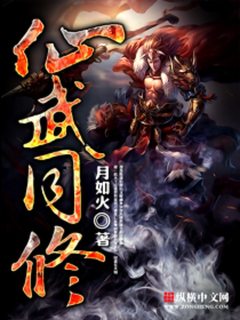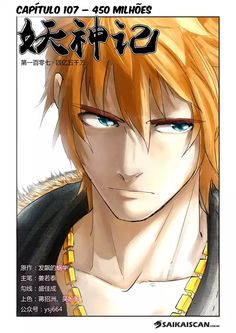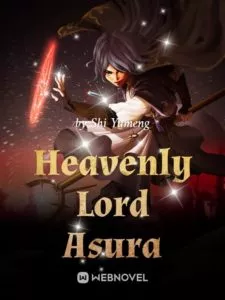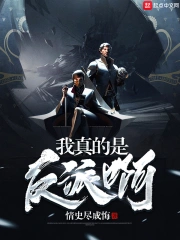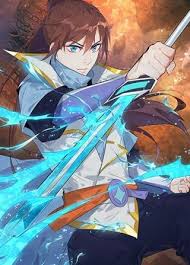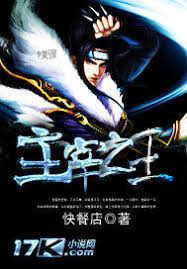The Story in 3 Sentences
A directionless shut-in named Xiao Chen crosses over into the brutal Tianwu World after buying a mysterious ‘Compendium of Cultivation’, transforming from a despised good-for-nothing into a terrifying genius.
His path shifts violently as he masters forbidden arts, refines divine pills, and awakens the legendary Azure Dragon Martial Soul, forcing empires and sects to tremble before his relentless ascent.
The story drives him towards an ultimate confrontation where he must wield both immortal techniques and martial supremacy to defy heavens and sovereigns, becoming an unstoppable force who reshapes the world’s very laws.
Why It Stands Out
1. The Unstoppable Momentum Machine
This novel is a perpetual motion engine of progression. Every chapter throws a new challenge, a fiercer rival, or a deadlier tournament at Xiao Chen, and his victories are never cheap. The narrative thrives on constant, high-stakes action, ensuring readers are perpetually hooked by the next impossible feat he must achieve. It’s pure, unadulterated power fantasy executed with breakneck speed.
2. The Alchemist-Warrior Archetype Perfected
Xiao Chen isn’t just strong; he’s resourceful. His mastery over pill refining, talisman crafting, and formation arrays adds a brilliant strategic layer to his brute force. He doesn’t just overpower his enemies; he outsmarts them, using his cultivated resources to turn the tide in seemingly hopeless battles. This dual-threat capability makes his journey uniquely satisfying and sets him apart from simpler brute-force protagonists.
3. A World Built for Escalation
The Tianwu World is designed for constant escalation. From local sect conflicts to continent-shaking wars and battles against celestial sovereigns, the stakes never plateau. The power system, while sometimes criticized for being loosely defined, allows for breathtaking displays of power where characters can alter weather with a wave of their hand, making every major fight feel cosmically significant and visually spectacular.
Characters That Leave a Mark
There’s Chu Chaoyun – once a primary antagonist from the Misty Sword Palace whose schemes against Xiao Chen ultimately forge an unexpected, grudging respect and alliance, embodying the novel’s theme of enemies becoming unlikely comrades through shared trials.
You’ll meet Jiang He – a figure whose specific role and impact within Xiao Chen’s sprawling journey remain consistent across the narrative, serving as a notable presence whose interactions help define the protagonist’s path through the complex web of sects and powers.
And Luo Li? They’re the one who stands as a distinct personality within the vast cast, their actions and relationship with the central conflict leaving a memorable, if sometimes enigmatic, impression on the unfolding saga of martial and immortal supremacy.
The Flaws Fans Debate
The power progression and cultivation realms often feel inconsistent or poorly explained, leaving readers confused about the true scale of strength between characters and arcs.
The plot relies heavily on repetitive tropes: countless arrogant geniuses challenge Xiao Chen only to be humiliated, and new, more powerful enemies appear constantly with little buildup, making some conflicts feel formulaic.
Many side plots and introduced elements, especially concerning inheritances or ancient grudges tied to Xiao Chen’s gains, are either resolved hastily or seemingly abandoned, creating a sense of narrative sprawl without always delivering satisfying closure.
Must-Experience Arcs
Ch. 1–200: The Tianwu Rise – Xiao Chen sheds his “trash” status in the Tianwu Continent, mastering the Purple Thunder Divine Incantation and awakening his Azure Dragon Martial Soul, setting the foundation for his legend through local tournaments and sect rivalries.
Ch. 800–1200: Heavenly Battle Crucible – Ascending to the Heavenly Battle Palace, Xiao Chen faces elite disciples and ancient trials, his power skyrocketing as he forges divine weapons and uncovers deeper conspiracies that threaten the entire realm, marking his transition from regional powerhouse to continental threat.
Ch. 2300–2380: Sovereign’s Endgame – In the final confrontation, Xiao Chen battles the god-like Thunder Sovereign and other supreme entities, wielding the full might of his dual cultivation to shatter heavenly decrees and secure his ultimate destiny, culminating in a world-altering epilogue.
Killer Quotes
“The weather changes at the whim and wave of a palm. He who cultivates both immortal techniques and martial arts, who could possibly defeat him!”
“Reach the peak of immortal cultivation and become able to run amok without fear! Use the power of martial arts to rule the world and defeat heroes!”
Cultural Impact
Boasts over 5,400 reading lists on NovelUpdates, a testament to its massive, enduring popularity within the English web novel community.
Frequently recommended alongside giants like “Against the Gods” and “Martial God Asura,” cementing its status as a foundational text in the Xianxia/Xuanhuan genre for Western readers.
Its tropes—the lazy MC, the harem implications, the endless revenge cycles—have become so iconic they are often referenced, memed, or parodied in online forums discussing cultivation novels.
Final Verdict
Start Here If You Want:
A relentless, action-packed power trip where the hero wins, gets stronger, and wins again, with no filler.
Classic Xianxia wish-fulfillment: pill refining, treasure hunting, beautiful companions, and crushing arrogant foes.
A complete, massive saga (2300+ chapters) that delivers a definitive ending after a long, wild ride.
Study If You Love:
The intricate (if sometimes inconsistent) blending of martial arts progression with immortal/alchemy systems, a core Xuanhuan appeal.
Analyzing the evolution of the “overpowered but not invincible” MC archetype and its impact on modern web novel storytelling.
The social dynamics of cultivation worlds, where sect politics, ancient grudges, and resource wars drive the narrative as much as personal power.
Avoid If You Prefer:
Tightly plotted, character-driven narratives with minimal repetitive tropes or formulaic conflicts.
Clearly defined and consistently applied power systems and world-building rules.
Stories where the protagonist engages in deep diplomacy or avoids constant, violent confrontation.
